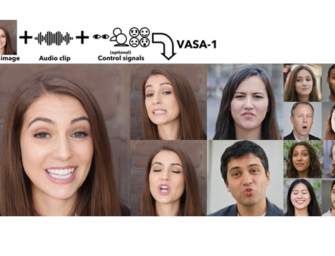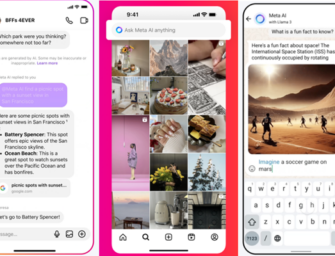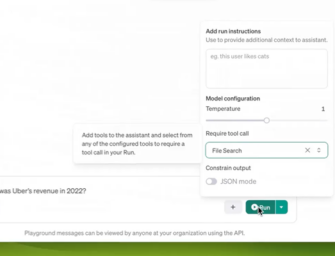Google Duplex Won’t Be Available in These 12 States At Launch and Will Only Support 3 Use Cases
Google Duplex was the star of the main stage Google I/O developer conference presentations yesterday. Not only is the technology impressive in terms of what it can do and the naturalness of the synthetic voices, but it carried the “wow factor” of showing people much more sophisticated voice assistant use cases than what we have today. In case you missed it, the demonstrations were of Google Assistant making phone calls to book a hair appointment, make a restaurant reservation and inquire about retail store hours on behalf of a user. The official announcement says Google Duplex will be available in July, but users in 12 states are not expected to have access according to a Google employee.
All Party and One Party Consent Laws
California, Connecticut, Delaware, Florida, Illinois, Maryland, Massachusetts, Montana, Nevada, New Hampshire, Pennsylvania, and Washington State all have what are referred to as “All Party” consent laws that restrict the recording of phone conversations. The restriction is that all parties to the communication must grant permission for the call to be recorded.
Google Assistant must record the spoken utterances from the person being called in order for Google Duplex to execute the assigned tasks. The recording is analyzed so the Assistant can then determine how to respond and if the conversation is moving forward, would benefit from additional clarification, is complete or requires direct interaction from the user. Since the request for permission would be socially awkward and add friction to the process because the call would have to start with the request that the call be recorded, Google is planning to simply not offer the service in “All Party” consent states. Michigan also has an “All Party” consent law, but the interpretation is that it only restricts parties not involved in the conversation from recording it. This is open to interpretation about whether Google or the user are the party, but may result in Michigan also being excluded for an abundance of caution.
One Party Consent and Cross Jurisdictional Considerations
Other states either have no statutes on this topic or have adopted a “One Party” consent standard. “One Party” consent means that recording a call is legal if one of the parties involved has agreed to it. Since Google or the user have granted consent, the recording is legal in the majority of U.S. states. Keep in mind that cross-state or eventually multi-country interactions will likely require adherence to the most restrictive law of either the originating or receiving party of the call. This may also require consideration about whether a user in California that offers consent can connect with someone in a “One Party” state such as Virginia that does not. Is the user subject to litigation in California under state law? Extend this further to where the Assistant resides in terms of its code base. If the code is executed from a California-based data center, does California law govern the interaction even if the Assistant user and the person being called reside in “One Party” consent states? Who is the party to this interaction, Google Assistant or the user?
This situation illustrates that our current legal frameworks were not designed with the many uses of voice assistants in mind. There are similar issues with GDPR in Europe and in 2017 we saw some required updates in U.S. COPPA law to address the issue of recording voice interactions with children. It will be interesting to see if legislators in the 12-13 states with more restrictive policies create an exception for voice assistants working on our behalf.
Will People Be Informed They are Speaking to a Robot?
In addition, the Google representative clarified that Duplex interactions do not anticipate proactively notifying the person answering that they are speaking to a digital assistant. However, Google is prepared to acknowledge that it is Google Assistant or at least a digital assistant on the call if asked by the other party. This point was reinforced by a Google representative speaking with The Verge’s James Vincent:
Speaking to The Verge, Google went further, and said it definitely believes it has a responsibility to inform individuals.
It appears that Google is still working through the policy, ethics and public relations strategy around this detail. Because Google Duplex has agency granted by a user and interacts with humans to complete tasks and it is so humanlike in domain-limited conversations, a clear policy will be needed. Google appears to be leaning toward reactive transparency as opposed to proactive notification. Given the nature of the intended interactions, this seems reasonable provided Google Duplex complies with the laws governing the people involved in the interaction. It is also possible that Google’s position on these topics and not set today and could change before the official launch in July 2018.
Google Duplex Will Only Support 3 Use Cases at Launch
Another clarification about Google Duplex is also merited. Google CEO Sundar Pichai only demonstrated three use cases at Google I/O for Google Duplex: booking a hair appointment, making a restaurant reservation, inquiring about store hours. Similarly, the official Google blog post describing the new service only mentions those same use cases. While you can imagine many ways to utilize a service like Google Duplex, the company only intends to support the three use cases at launch. This is largely a practical consideration. You can hear from the examples below that the human interactions can be quite complex. Google Duplex is much more likely to succeed by limiting the domains of interaction and developing deep expertise that supports the common vocabulary and expected conversation for these use cases.
Setting a Hair Salon Appointment
Making a Restaurant Reservation
Inquiring About Holiday Hours
Thanks go to Matthiesen, Wickert & Lehrer, S.C law firm for their excellent summary of state recording consent laws that was published in April 2018. Also, I wanted to acknowledge that I had a conversation about consent and state restrictions with Dieter Bohn from The Verge before later speaking to the Google representative for clarification. My conversation with Mr. Bohn clarified my thinking about the topic and it was serendipitous that I started speaking with a Google representative with in-depth knowledge of this situation and its legal implications shortly thereafter.
New Voicebot Report Says Nearly 20% of U.S. Adults Have Smart Speakers










